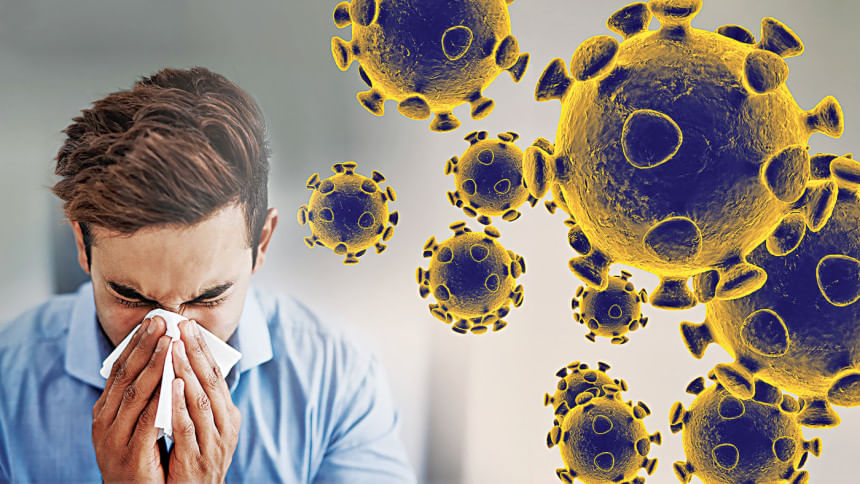Is herd immunity on COVID-19 hard to achieve?

Herd immunity is a concept based on the body's immune resistance to the spread of a contagious disease within a population. It is achieved when a significantly high proportion of individuals are vaccinated against it and therefore develop immunity. When enough people are vaccinated, a virus is unable to spread through the population.
As no vaccines for coronavirus are yet in sight, experts caution that achieving natural herd immunity in majority of the population of Bangladesh might bring forward a health catastrophe considering the country's population density, healthcare facilities, and awareness regarding COVID-19 among its citizens.
Herd immunity can be acquired in two ways, either naturally or artificially. Achieving herd immunity naturally equals to a public health catastrophe where a huge number of people will get infected and some of them will die.
However, the reality is that there is no vaccine for the coronavirus as of yet. In the absence of a vaccine, immunity to the virus can likely only be achieved if an individual contracts it and survives, developing antibodies in their system. It would require the immune-compromised to be sacrificed for the sake of the economy, a notion which is unacceptable and inhumane.
The concept centres on enough people in the population, as many as 70 percent in the case of COVID-19 getting infected thereby building up their immunity to the virus. With an overwhelming majority having developed such immunity, the rest of the population would be much more secure and the infection would gradually fade away. For many viruses, including coronavirus, any immunity if there be, lasts a few months at best, especially given that the virus mutates. Unless and until it is shown that COVID-19 patients benefit from long term immunity, to consider herd immunity is but a fairytale.
The World Health Organisation said in a statement, "There is currently no evidence that people who have recovered from COVID-19 and have antibodies are protected from a second infection." This means the concept of herd immunity is not guaranteed even if 70 percent of the population were to get infected. Besides, when 70 percent of a population gets infected, many will die when the infection overpowers the antibodies. 70 percent of this population which requires to be infected for herd immunity, comes to a huge number. In other words, more than 120 million people will be required to get infected with COVID-19 before herd immunity kicks in. If a 1 percent mortality rate is applied, the number of people dead would be massive.
Medical experts agree that at some point we will all acquire herd immunity like we have done so with other diseases. But if a population races towards herd immunity before a vaccine is available, the cost in human lives can be catastrophic. This is why the aim is to suppress the spread of infection as much as possible so that the health facilities are not overwhelmed before a vaccine is made available.
The writer is a gerontologist and a public health specialist.
E-mail: [email protected]

 For all latest news, follow The Daily Star's Google News channel.
For all latest news, follow The Daily Star's Google News channel. 



Comments